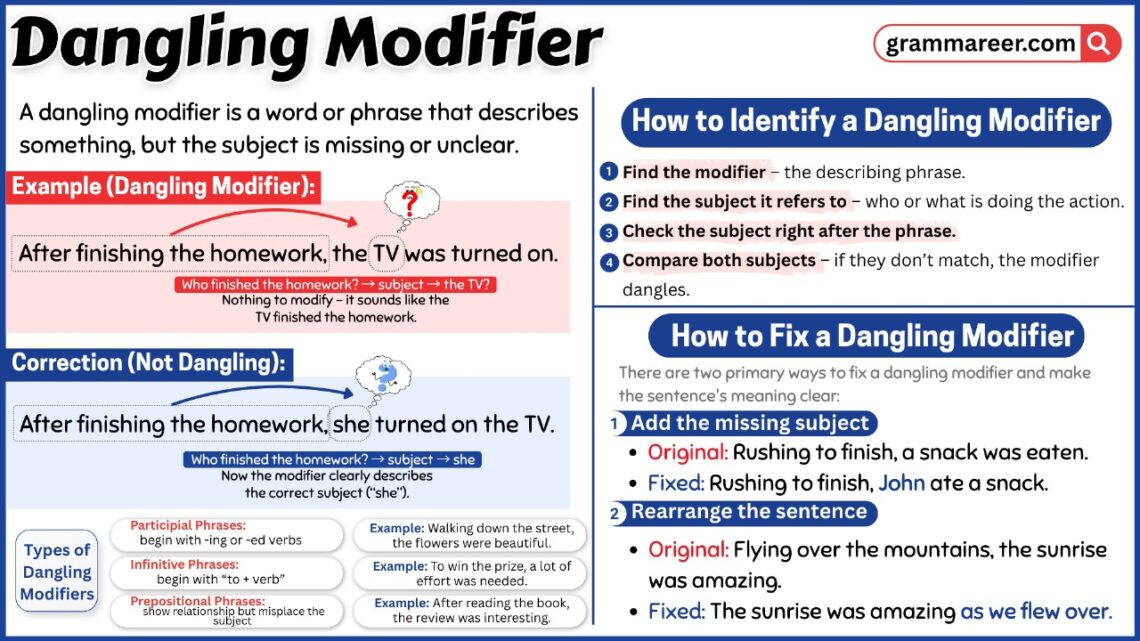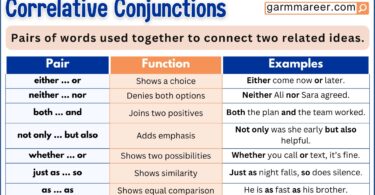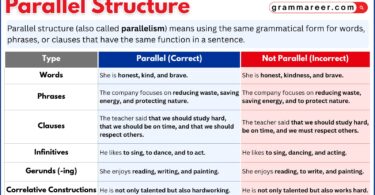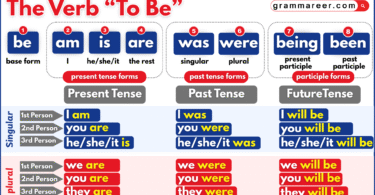A dangling modifier is a word or phrase that doesn’t clearly describe the word it’s supposed to. It kind of “dangles” in the sentence, leaving readers confused about who is doing the action. Dangling modifiers can make writing unclear, but the good news is they’re easy to fix once you know how.
In this article, we’ll explore what dangling modifiers are, why they happen, and how you can fix them to make your writing clearer.
Table of Contents
What Is a Dangling Modifier?
A modifier is a word or phrase that gives extra information about something in a sentence. When you start a sentence with a modifier, it should clearly describe the subject (the doer of the action). If it doesn’t, the sentence becomes confusing or even funny—and that’s what we call a dangling modifier.
Example:
- ❌ Incorrect (Dangling):
- Having eaten breakfast, the bus left for school.
- ✅ Correct:
- Having eaten breakfast, Ali left for school.
In the wrong sentence, the phrase Having eaten breakfast seems to describe the bus — which is illogical. In the correct sentence, the phrase clearly describes Ali , so the meaning is clear.
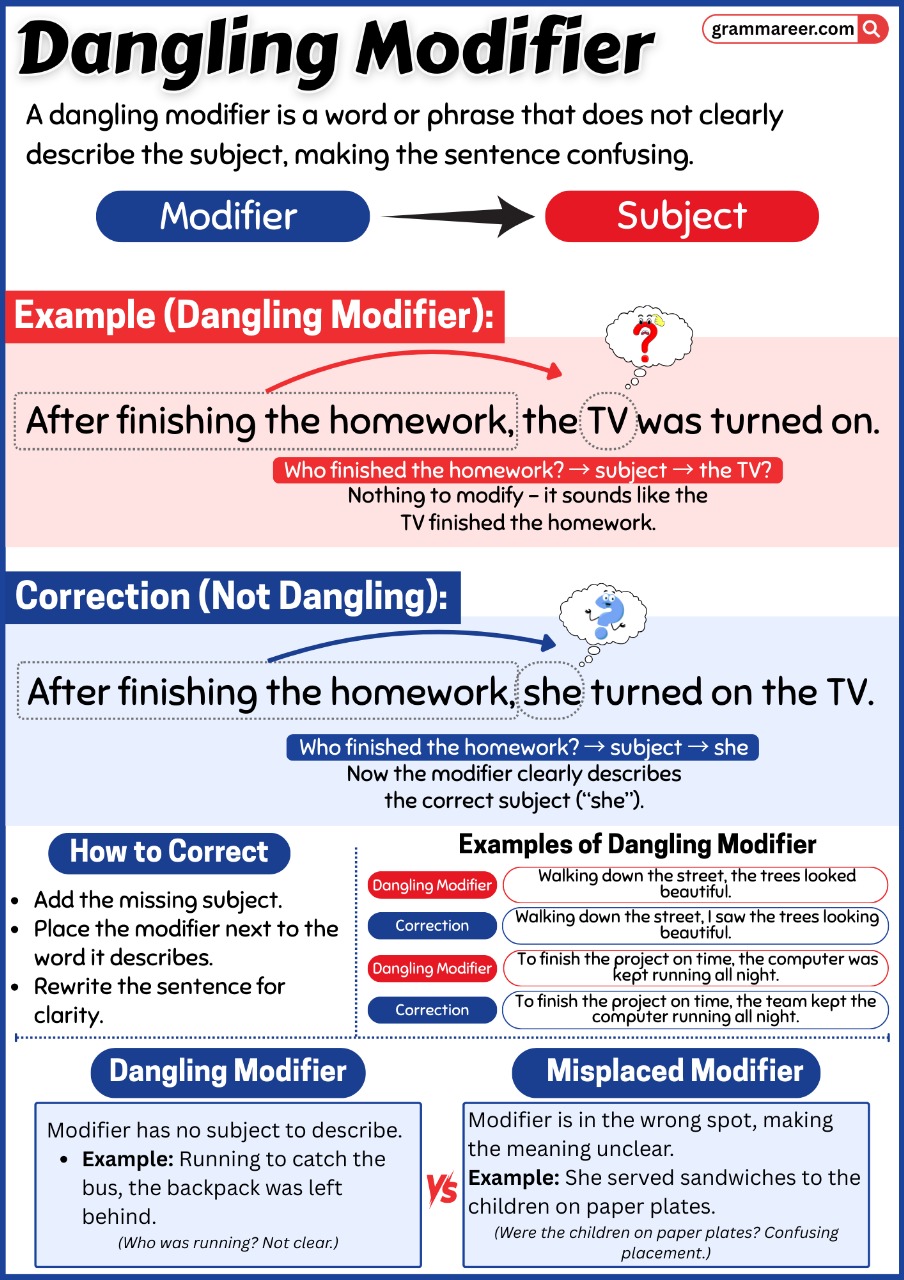
Recognizing Dangling Modifiers
When we write sentences, we often begin with a phrase that describes an action. But sometimes that phrase doesn’t match the subject that follows. This creates a mistake called a dangling modifier. It’s called “dangling” because the description is left hanging, without a clear subject to connect to. Learning to recognize these mistakes will make your writing clearer and easier to understand.
Example:
- ❌ Incorrect
- Walking to the bus stop, the music was loud.
- Now it sounds like the music was walking to the bus stop—which is nonsense.
- ✅ Correct
- Walking to the bus stop, Ali listened to music on his phone.
- The phrase “Walking to the bus stop” clearly describes Ali.
- The subject comes right after the comma, so the sentence makes sense.
Another Example:
- ❌ Incorrect:
- After studying all night, the sofa felt comfortable.
- This makes it sound like the sofa did the studying.
- ✅ Correct:
- After studying all night, Zahra fell asleep on the sofa.
- Here, “After studying all night” is linked directly to zahra.
How to Fix a Dangling Modifier?
Fixing a dangling modifier is not hard. Fixing dangling modifiers is easier than it sounds. There are only two main ways to do it:
Method 1: Fix the main sentence
Keep the beginning phrase the same, but rewrite the main part so the subject (the person doing the action) comes right after the comma.
Exampless:
| ❌ Dangling Sentence (Wrong) | ✅ Fixed Sentence (Correct) |
| Having injured his hand, it was difficult to write the exam. | Having injured his hand, Ahmed found it difficult to write the exam. |
| Hungry after two hours of hiking, my sandwich was eaten quickly. | Hungry after two hours of hiking, Fatima quickly ate her sandwich. |
| Smiling from ear to ear, the candles were blown out | Smiling from ear to ear, Ayesha blew out the candles. |
| To become a dentist, many teeth must be cleaned. | To become a dentist, Bilal must clean many teeth. |
Method 2: Fix the opening phrase
Here, you rewrite the beginning so it already includes the subject.
Example:
| ❌ Dangling Sentence (Wrong) | ✅ Fixed Sentence (Correct) |
| Having injured his hand, it was difficult to write the exam. | Because Ahmed injured his hand, it was difficult to write the exam. |
| While driving to work, a car accident caused traffic on the road. | While Hassan was driving to work, a car accident caused traffic on the road. |
| Requiring more data for the study, 200 questionnaires were collected. | Because we needed more data, 200 questionnaires were collected. |
| Taken down to the cellar, the darkness hid the details of the room. | As Omar was taken down to the cellar, the darkness hid the details of the room. |
Dangling Modifier vs. Misplaced Modifier
These two mistakes look similar, but there’s a simple way to tell them apart. Both involve modifiers (phrases that give extra information), but the problem is where the modifier is connected.
| Dangling Modifier | Misplaced Modifier |
| A dangling modifier describes something that’s not even in the sentence. It’s like the description is hanging in the air with no subject to grab onto. Example: ❌ After studying all night, the blanket felt very soft. (Who studied? Not the blanket!) ✅ After studying all night, Ali collapsed on the soft blanket. | A misplaced modifier describes the right word, but it’s in the wrong place in the sentence, which makes it confusing. Example: ❌ Ali almost drove his kids to school every day. (This sounds like Ali almost drove, but didn’t.) ✅ Ali drove his kids to school almost every day. |
Is a Dangling Modifier Always Wrong?
Not really. Sometimes a dangling modifier doesn’t cause any real confusion because the subject is obvious from the context. The sentence may look “incorrect” on paper, but people still understand what it means.
Examples:
- ❌ Walking to the mosque, his shoes got wet.
- This looks like the shoes were walking. But we know it’s really he who was walking.
- ❌ After finishing the Quran, her eyes filled with tears.
- It seems like the eyes finished the Quran, but clearly, it was she who did.
In both cases, the intended meaning is easy to figure out. That’s why some grammarians say dangling modifiers aren’t always a big mistake—especially when the subject is obvious.
Why Dangling Modifiers Matter?
You might think dangling modifiers are just tiny grammar mistakes, but they actually matter a lot. Why? Because they can make your sentences sound unclear, funny, or even confusing. And if your reader is grammar-smart, they’ll notice right away.
Knowing how to spot dangling modifiers also gives you a strong skill: you can politely correct a friend, classmate, or even your boss when they slip up. That’s definitely a win!
A Common Mistake
Dangling modifiers often show up when the subject is missing or in the wrong place.
Example:
- ❌ While cooking dinner, the fire alarm rang loudly.
- (It looks like the fire alarm was cooking dinner.)
- ✅ While cooking dinner, Ahmed heard the fire alarm ring loudly.
- (Here, it’s clear that Ahmed was cooking.)
Tip to Avoid Them
Always keep your modifier close to the subject it’s describing. The subject usually comes right after the opening phrase.
Example:
- ❌ Crossing the road, the car nearly hit Saima.
- (It sounds like the car was crossing the road.)
- ✅ Crossing the road, Saima was nearly hit by the car.
- (Now the subject matches the action—no confusion.)
FAQs
A dangling modifier is a word or phrase at the beginning of a sentence that doesn’t clearly attach to the subject. It leaves the description “hanging” without a doer.
Check the phrase at the start of the sentence. Then ask, Who is doing this action? If the subject is missing or doesn’t make sense, it’s a dangling modifier.
They confuse the reader and sometimes make sentences sound silly.
For example:
“Running to school, the backpack was heavy.” → Sounds like the backpack was running.
Two ways:
• Put the subject right after the phrase.
• Put the subject right after the phrase.
Yes! People make this mistake often without noticing, especially in quick writing. That’s why learning to recognize and fix them makes your writing clearer and more professional.
You May Also Like

